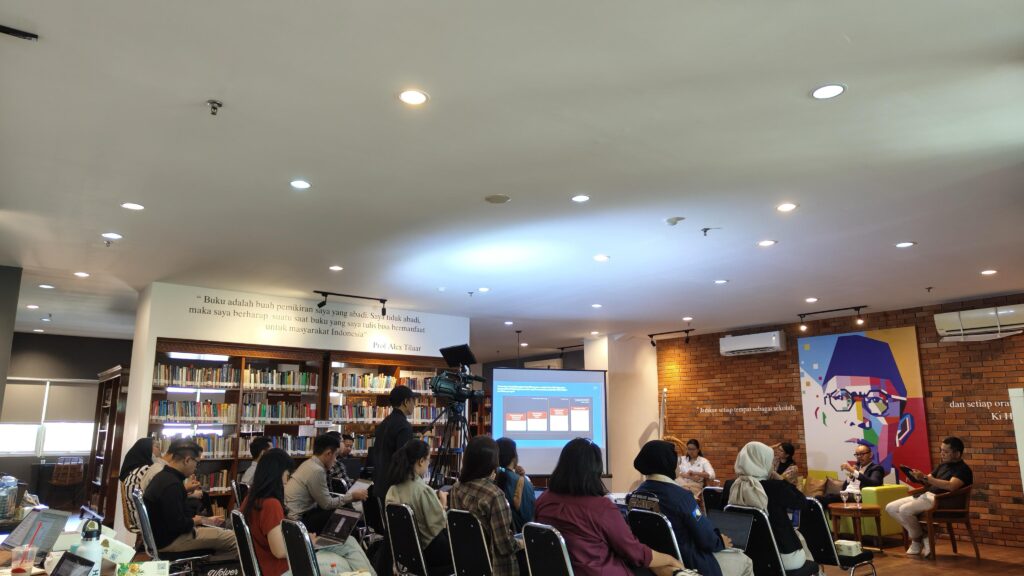Amid growing concerns over the escalating climate crisis, Indonesian banks have poured over US$7.2 billion to finance the coal sector between 2021 and 2024, a report has revealed.
A new report of the #BersihkanBankmu Coalition, titled “Funding the Climate Crisis: How Banks in Indonesia Support Coal Financing”, underscores the continued financial support for coal companies, while revealing that five major national banks accounted for US$5.6 billion of the total US$7.2 billion.
Bank Mandiri was the largest contributor with US$3.2 billion, followed by Bank Rakyat Indonesia (BRI) with US$809.5 million, Bank Negara Indonesia (BNI) US$719.6 million, Bank Central Asia (BCA) US$451 million, and Bank Permata US$424 million.
This continued financing trend stands in stark contrast to global efforts to curb carbon emissions and mitigate the impacts of climate change. The coalition’s report highlights how weak government policies and lack of consistent energy transition strategy contribute to the ongoing financing of the coal sector, particularly through coal-fired power plants (PLTU) and coal mining operations.
Persistent coal financing is also driven by the government’s contradictory stance on energy transition. While the Financial Services Authority (OJK) has categorized coal mining and unabated coal power plants as harmful to the environment and climate, the government has yet to introduce concrete measures to phase out coal.
In fact, the government’s most recent energy plan, the 2025-2034 Electricity Supply Business Plan (RUPTL) for state-owned electricity company PLN, includes the construction of additional coal-fired power plants. These plants are expected to add up to 6.3 gigawatts (GW) of capacity over the next decade, exacerbating Indonesia’s reliance on coal despite its commitment to addressing climate change.
Furthermore, the government is also pushing forward with plans to add 11 GW of captive coal power plants by 2026, which would primarily serve industrial facilities directly connected to coal power plants. This move contradicts President Prabowo Subianto’s ambitious pledge to achieve 100 percent renewable energy by 2030.
Inconsistent policies
Nabilla Gunawan, lead author of the report and researcher with the Coalition, emphasized that the government’s inconsistency in energy policy is a major barrier to the transition to renewable energy. The lack of firm commitment to phasing out coal means that Indonesian banks have no clear directive to cut off funding to coal projects, with five of the largest banks in the country continuing to fund projects that directly contribute to climate change and thereby undermining Indonesia’s international commitments to sustainability.
“While the government recognizes the environmental and climate risks associated with coal, the fact that these policies are not consistently enforced or fully implemented leaves banks with little incentive to adopt stronger coal exclusion policies. These financial institutions continue to funnel billions of dollars into the coal industry, which ultimately endangers long-term environmental sustainability and their own financial stability,” Nabilla said as quoted in a statement on Thursday, July 31, 2025.
This situation is compounded by the declining global demand for coal, which has led to a drop in Indonesia’s coal exports. The first quarter of 2025 saw a record low in coal exports, with China and India – two of the largest coal importers – reducing their dependence on the fossil fuel as part of their own environmental and energy transition policies. The World Bank has also forecast that coal prices will continue to decline until 2026, further eroding the economic viability of the industry.
Risks
Despite these alarming trends, the ongoing financing of coal projects remains a significant risk to the banks involved. Nabilla noted that banks which continue to invest in coal projects could face reputational damage and the potential loss of investor confidence. As coal projects become increasingly economically unviable and politically contentious, these banks may also find themselves exposed to climate-related financial risks that could undermine their long-term business viability.
The Indonesian government has set ambitious targets for coal downstream projects, such as coal-to-liquid (CTL) and coal gasification, but these projects have failed to yield significant economic returns so far, in large part due to their weak economic feasibility. Despite being classified as a priority sector under State investment management agency Danantara, the coal sector has not proven to be a reliable or profitable investment in the long run, signaling the need for a more strategic approach to energy investment.
Nabilla emphasized the importance of adopting financial policies that align with global best practices and scientific pathways to achieve net-zero emissions by 2050. She called for Indonesian banks to adopt coal exclusion policies, saying that this would be a crucial step in reducing the financial risks posed by coal investments.
Focus toward renewable energy
In support of this transition, Putra Adhiguna, Managing Director of the Energy Shift Institute (ESI), underscored the need for the government to create more favorable conditions for the financing of renewable energy. He cited that Southeast Asia, including Indonesia, is lagging behind other regions in terms of renewable energy investment. Adhiguna emphasized the importance of not only long-term planning, such as the RUPTL, but also offering short-term renewable energy projects that banks can fund.
“Indonesia must start building the bridge to a renewable energy future. It is not enough to wait for external aid or for renewable energy technologies to become cheaper in the future. We must act now to create opportunities for investments in energy transition,” he said.
Role of Danantara
Another key actor in this transition is Danantara, the super-holding company for state-owned banks like Bank Mandiri, BNI, and BRI.
Bhima Yudhistira, Executive Director of the Center for Economic and Law Studies (CELIOS), argued that Danantara must take a more active role in evaluating the environmental and social impact of the projects it funds. He emphasized the need for Danantara to integrate environmental, social, and governance (ESG) criteria in its project evaluation process to ensure that investments align with Indonesia’s long-term sustainability goals.
Danantara is also a member of the International Forum of Sovereign Wealth Funds (IFSWF), which adheres to the Santiago Principles to ensure transparency, accountability, and good governance in sovereign wealth fund management.
Bhima pointed out that as a large entity with significant funds under its management, Danantara has a unique opportunity to influence the direction of Indonesia’s energy investments.
“With Danantara’s large asset pool and commitment to the Santiago Principles, there should be a clear push for more sustainable investment practices, particularly in renewable energy, to ensure that the state-owned banks it oversees contribute to a greener future,” he said.


